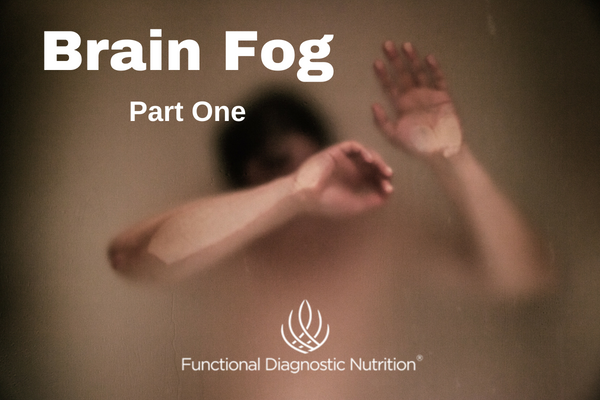What Causes Brain Fog?
It happens to the best of us. Everyone, from time to time, suffers from a little lapse in mental clarity. We’ve all had moments where we forgot a name, misplaced our keys, had trouble producing a word, or just felt a bit hazy.
We often joke about experiencing “senior moments” and feeling “spacey.” However, if you are having regular bouts of memory loss, feeling lost or confused, or having trouble concentrating, it isn’t very funny, and it certainly isn’t normal.
The brain is always “on.”
It is constantly processing, sorting, sending and receives messages. These messages do things like keep your blood pumping, lungs breathing, hormones releasing, and muscles moving.
All this work requires a significant amount of energy, oxygen, and nutrition. Things like inflammation, food allergies and sensitivities, as well as changes to the fuel and oxygen supply profoundly affects the brain and its ability to function.
There are many forces that can bring about symptoms of brain fog. And they all have one thing in common:
Stress
That’s right. Each of the potential causes of brain fog place stress upon the body, which causes imbalances, which then lead to symptoms occurring. When the brain is stressed, it ages more rapidly.
Potential Causes of Brain Fog:
- Physical, mental, and emotional stress
- Hypoglycemia or blood sugar dysregulation
- Food Intolerances and sensitivities
- Nutrient deficiencies and mineral imbalances
- Metal toxicity
- Liver and kidney dysfunction
- Leaky gut and digestive system imbalances
- Structural misalignment
- Dehydration or insufficient oxygen
- Endocrine dysfunction and hormonal imbalances (including menopause and pregnancy)
- Candida overgrowth and parasite infections
- Medications
- Serious medical conditions such as Lyme infection, brain tumors, meningitis, epilepsy, Parkinson’s, autoimmune diseases, and physical head trauma
- Anything mental, emotional, physical or chemical that chronically stresses the body
- Thyroid dysfunction
If you are currently experiencing symptoms of brain fog, then degeneration has already begun. However, actions you take today can support your mental muscles long into the future.
Simple Steps to Get Your Brain Working Again
Good news! The brain is extremely adaptable and wants to be well. Losing mental clarity, while “common,” is not “normal” and should not be considered an inevitable consequence of growing older.
Once you have identified and reduced the sources of stress that are hurting your brain, then all you need to know is how to properly feed and care for it.
The key to restoring function and overcoming most health complaints is identifying the source of the problem. The same is certainly true for brain fog. Using personalized assessments and functional lab tests, FDN Practitioners can help identify hidden stressors, areas of dysfunction, and target opportunities to clear up those clouds.
Here are few of the areas where the FDN Practitioner looks for clues:
Gut Instincts. There are very real connections between the gut and the brain. If you have a toxic bowel, chances are you will eventually end up flooding your brain with toxins. It’s that simple.
Increased intestinal permeability (Leaky gut syndrome) is a condition in which waste, bacteria, undigested foods, and other harmful substances are able to cross through the gut lining and into the bloodstream. Once in the bloodstream, these toxic substances can travel to other organs in the body, including the brain.
Many people who experience brain fog are also prone to constipation, bloating, gas, or diarrhea. Often this means there is an imbalance between the friendly and “bad” microbes that reside in your gut. Bad bacteria can secrete toxins that enter your bloodstream and actually pass through your blood-brain barrier, muddling your thoughts and raising the risk of depression or anxiety.
Gut problems can be caused by a number of things including hormonal imbalances, bacterial or yeast overgrowth, food intolerances, toxins, and parasite infestations. Easy to use functional lab tests can help identify what’s going on and how to address it naturally, instead of just chasing symptoms.
Sorting through the BS The brain likes a steady supply of it’s favorite fuel, blood sugar. It doesn’t like too much or too little at any time. High blood sugar is a major risk factor for the development of dementia in your later years, and even a mild elevation in blood sugar can be harmful to your brain. Low blood sugar can be equally as troubling. Brain fog, headaches, nausea, irritability, hunger and fatigue are just a few common effects of low blood sugar. Low blood sugar can be life threatening. Learning how to manage your blood sugar through diet and lifestyle is essential to having a strong head on your shoulders.
Food Fight Food is nutrition. Nutrition is necessary for optimal health. However, many people have allergies, sensitivities, and intolerances to certain otherwise healthy foods. Our bodies perceive these foods as enemies and may go on the attack. The resulting elevation in antibodies and inflammation can lead to a variety of symptoms including digestive issues, fatigue, skin problems, and brain fog.
Metal Heads Toxic metals in our food and our environment can have a huge impact on cognitive health. Neurotoxins like copper, cadmium, and mercury can be found in many food products, household items, second-hand smoke, old dental work, and in many industries and workplaces. FDN Practitioners help you to identify heavy metals and other toxins and advise you on how to reduce toxic load on your body.
Be sure to check out Part 2: What is brain fog? Also, learn a few very basic, low-cost lifestyle changes, can make and be on your way to a fog-free future!







